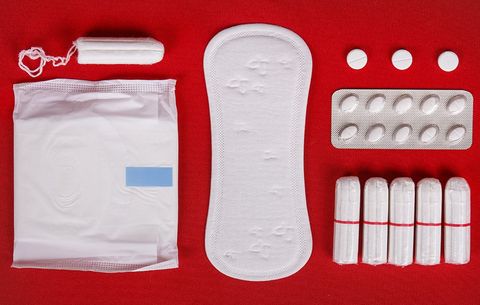Sex is a choice. A woman’s period is not.
A period isn’t something women can just put a tampon in and ignore either. According to Health Line, common symptoms include abdominal cramping, skin breakouts, tender breasts, fatigue, bloating, bowel issues, headaches, mood swings, lower back pain and troubles sleeping.
Menstruation lasts between four to eight days every month. On average, women spend seven years of their life on their period. So why isn’t this talked about more? Why doesn’t the government acknowledge this, despite the standard women are always supposed to uphold?
On Feb. 27, Scotland became the first country to offer free feminine hygiene products to women. According to the Scottish Parliament, it approved a plan to make menstrual products available for free in public spaces such as community centres, pharmacies and youth clubs. It is estimated to cost $31.2 million a year.
Scotland has previously offered pads and tampons free of charge at schools and universities as a matter of national policy since 2018. This was put in place to alleviate “period poverty.” A member of Parliament, Neil Findlay, noted the bill has broken down “the barrier of our inability to discuss such serious issues about our health and well-being in the media or in public without embarrassment, reticence and discomfort.”
A survey done by Plan Canada International in 2018 suggested one-third of women under 25-years-old find it difficult to afford menstrual products and further suggested almost three-quarters had missed work for reasons connected to menstruation, such as not having the supplies they needed when a period started unexpectedly.
So, why can’t Canada do something to help accommodate? Canada removed the tax on feminine hygiene products in 2015 after an online petition gained traction. This tax removal estimated a cost of $36 million to the government.
Many people claim condoms are a man’s equivalent to tampons. But how? Women don’t choose to have a period. People can choose to have sex, with or without a condom. But yet, condoms can be found free of charge at community contraceptive clinics, sexual health, genital and urinary medicine clinics, local health units, some youth service centres, schools and general practitioner doctors in Canada. Free tampons, however, are more challenging to find.
Why should men have free condoms available in multiple locations, but women – who do not have a choice to get a period – cannot find free necessary items when needed?
It is about educating men on the reality of periods and normalizing it. It is about the government acknowledging that over 800 million women a day have their period. Why is there still a taboo around women’s periods?
Men need to understand the severity of menstration instead of just thinking of it as something they don’t have to deal with, so they don’t need to know about it. Periods affect half of the population – roughly 3.7 billion women. So why is this a conversation that gets pushed under the rug?
In the end, periods are a fact of life. Women naturally do not have the choice to have a period. Society needs to acknowledge that periods are never going to disappear. Women should not have to take on the financial burden of paying for these products just to get through their day. These products are not optional; they are a necessity. Canada needs to find a solution for women to have free access to menstrual products and eradicate the stigma around women’s periods.

